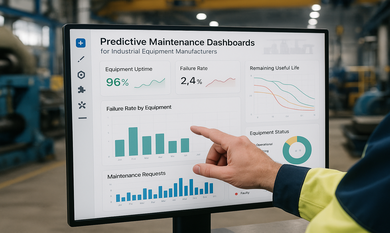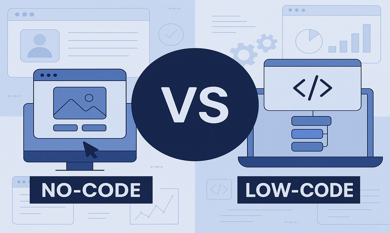The pharmaceutical industry faces numerous challenges in managing its supply chains and order processing, including demand fluctuations, inventory inefficiencies, and logistical bottlenecks. Artificial Intelligence (AI) and Machine Learning (ML) are transforming these processes, making them more efficient, data-driven, and responsive. By leveraging AI and ML, pharma companies can streamline supply chain operations, reduce costs, and enhance overall efficiency.
1. Demand Forecasting and Inventory Optimization
AI-driven predictive analytics can analyze historical sales data, seasonal trends, and external factors (such as pandemics or regulatory changes) to accurately forecast demand. ML algorithms continuously learn from real-time data, helping pharma companies optimize inventory levels, reduce overstocking or stockouts, and minimize wastage of perishable medicines. Companies leveraging machine learning development services in Dallas can integrate these solutions for real-time decision-making and improved efficiency.
2. Automated Order Processing
Manual order processing can be slow and prone to errors, leading to delays and inefficiencies. AI-powered automation streamlines order management by processing requests instantly, verifying stock availability, and prioritizing urgent orders. Chatbots and AI-based customer service solutions can handle inquiries, process reorders, and even provide personalized recommendations based on previous purchase history.
3. Supply Chain Visibility and Real-Time Tracking
AI and ML improve supply chain transparency by integrating IoT and blockchain technologies for real-time tracking of medicines from production to delivery. This ensures compliance with regulatory standards, prevents counterfeit drugs from entering the market, and enhances patient safety. Advanced tracking systems also help in proactive issue resolution by detecting delays or deviations in the supply chain.
4. Intelligent Route Optimization for Logistics
AI-powered logistics platforms analyze traffic conditions, weather patterns, and delivery schedules to optimize transportation routes. This reduces delivery times, lowers fuel costs, and ensures that critical medicines reach hospitals and pharmacies without delays. ML models can also predict potential disruptions and suggest alternative supply routes to maintain efficiency.
5. Fraud Detection and Compliance Management
AI algorithms can identify anomalies in supply chain transactions, helping pharma companies detect fraud, prevent theft, and ensure compliance with industry regulations. Automated compliance checks reduce the risk of legal issues and maintain adherence to global pharmaceutical guidelines.
Conclusion
AI and ML are revolutionizing the pharmaceutical supply chain and order processing by enhancing efficiency, reducing costs, and improving accuracy. As a leading AI development company in Dallas, Theta Technolabs offers AI-driven solutions tailored to pharma companies, ensuring seamless supply chain management and optimized order processing. By embracing AI, pharma businesses can stay competitive and deliver better healthcare outcome.






















_Choosing%20the%20Right%20App%20Development%20Company_%20A%20Comprehensive%20Guide_Q1_24.jpg)
_Chatbots%20for%20Event%20Management%20and%20Hospitality%20Services_Q1_24.jpg)
_Best%20iOS%20App%20Development%20Company_%20Enhancing%20User%20Engagement%20with%20Push%20Notifications_Q2_24.jpg)
_Key%20Trends%20in%20Healthcare%20Software%20Development%20for%20the%20Future_Q2_24.jpg)
_How%20much%20does%20it%20cost%20to%20create%20an%20android%20app%20in%202024%20for%20Startups_%20A%20detailed%20guide_Q2_24.jpg)
_Integrating%20Chatbots%20Into%20Your%20Application.jpg)


_Enhancing%20Driver%20Safety%20and%20Compliance%20with%20Web%20Apps%20in%20the%20Logistics%20Sector_Q3_24.jpg)
_Web%20Apps%20for%20Retail%20and%20eCommerce_%20Streamlining%20Operations%20and%20Reducing%20Costs_Q3_24.jpg)
_How%20AI%20is%20Enhancing%20Construction%20Site%20Surveillance%20and%20Security%20in%20Dallas_Q3_24-1.jpg)
_The%20Impact%20of%20Cross-Platform%20Apps%20on%20Real%20Estate%20Market%20Trends%20in%20Dallas_Q3_24-1.jpg)
_Streamlining%20Appointment%20Scheduling%20with%20Cloud%20Computing%20in%20Dallas%20Healthcare_Q4_25.jpg)
_How%20Cloud%20Solutions%20Are%20Enhancing%20Remote%20Patient%20Monitoring%20in%20Healthcare_Q4_25.jpg)































.png)












.png)

.png)
.png)
.png)
.png)


.png)
.png)
.png)

.png)






.png)
.png)

























